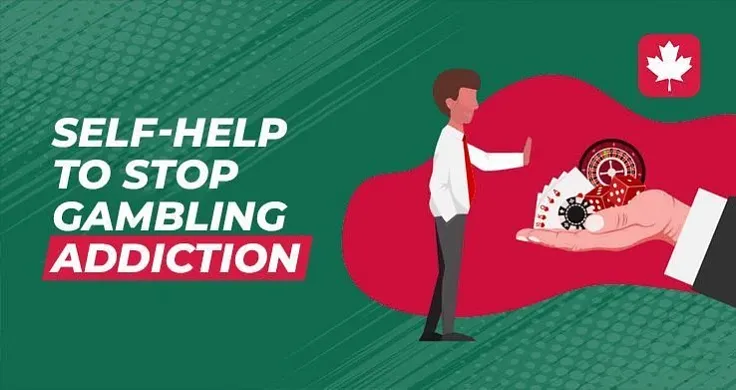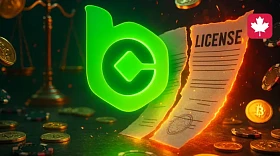
Self-help to stop Gambling addiction
Only 3% of problem gamblers, who account for about 43% of Brits, are thought to receive assistance. It's never too late to get assistance if you're concerned that a habit may have developed into an addiction. Here's how to put an end to gambling permanently.
Who doesn't enjoy believing they are fortunate? Over two-fifths of Brits have gambled at least once, shelling out an average of £135 annually, whether it be purchasing a monthly lottery ticket, snatching a quick scratch card at the register, betting on a race, or using mobile casino apps.
Despite the fact that gambling has become so popular, studies have shown that less than 3% of problem gamblers receive treatment, leaving them vulnerable to financial problems, relationships, careers, and spiralling debts.
Gamblers have also increased their expenditure due to growing concerns about the expense of living. Nearly half (46%) of those under the age of 35 gamble, with 30% reporting an increase in their habit over the past year. One in six of these gamblers spends more than £75 every month, and one in twelve spends more than $100.
Public Health England estimates that 0.5% of UK adults currently struggle with gambling. 3.8% more people are at risk, and 7% are being adversely affected by another person's gaming. But how can you tell when gaming becomes a bigger problem?
Do I have a gambling addiction? Identification of gambling addiction
People play the lottery for a variety of reasons. Perhaps you enjoy the chance to daydream about what you'd do with your winnings; perhaps the thrill of success, the social aspects, or the development of a habit keeps you going back.
Or perhaps you find yourself betting more when you're bored or using a casino app when you're anxious, stressed, worn out, or overwhelmed.
A problem with gambling may be indicated if you are borrowing money to gamble, are betting more than you can afford to lose, or have increased tension and anxiety when thinking about gambling.
You may develop compulsive gambling if you have constant cravings to bet. You can develop an obsession with the sensation of making substantial bets and "winning big." Your thoughts may begin to be consumed with gambling, which may have an adverse effect on your relationships, employment, daily routine, and daily life. According to Counselling Directory, gambling addiction can cause some people to feel as though they must conceal their behavior in order to avoid embarrassment and fear rather than face their problems head-on.
There are frequent indications of addiction that you may watch out for if you're concerned that you (or someone you care about) may have a gambling issue. These consist of:
-
missing out on job or school in order to gamble.
-
losing interest in hobbies, pursuits, or interactions with family and friends.
-
ignoring or withdrawing from relationships with family, friends, or partners.
-
Disputes involving money or gambling.
-
lying or attempting to conceal from others one's gambling habits
-
To finance gambling, people may sell goods, borrow money from friends or family, use savings, incur debt, or commit theft.
-
even after running out of money, keep gambling.
-
putting more money on a single wager or taking more risks when betting (to get a greater natural "high")
-
ignoring the harms associated with gambling (on relationships, at work, or on education)
-
gambling for a longer period of time than you had anticipated or finding it difficult to stop at the self-imposed time limit.
-
having the impression that all you can think about is gambling, always planning when or how to play next or how to recover losses.
-
Denial that you have a problem with gambling or the belief that you have it under control.
-
When not gambling or when thinking about gambling, feeling uneasy, tense, or restless.
-
displaying bad judgment, being irritated, defensive, having trouble focusing, or having trouble keeping track of time.
It's crucial to keep in mind that gambling can take many different forms. While some forms of gambling may be simpler to identify than others, there are many other forms of entertainment, including big video games, paid mobile apps, and other forms of paid entertainment, that encourage paying real money for in-game currency, "lucky" or "loot" boxes, or other random-change generating game items. There is growing fear that gambling addiction may be made worse by video games, mobile gambling apps, and websites.
Do I have a problem with gambling?

Even when we are aware of the symptoms of gambling addiction, it might be tempting to deny or minimize them. But the longer you ignore the warning signs, the greater the chance that your problem gambling may become out of control and negatively affect your relationships with family, friends, and your finances.
-
Do you think you are spending more time or money than you have available?
-
Is it possible to halt gambling at any time?
-
Am I assuming more risk?
-
Do I frequently or perpetually consider gambling?
-
After gambling, do I experience anxiety, rage, anger, guilt, shame, or depression?
-
Has anyone expressed concern about me or my behaviour - including my employees, supervisor, family, or friends?
It's never too late to start over and get assistance if you have a gambling addiction. The temptation to gamble may come and go (you may experience periods of remission) without assistance and support, but it frequently returns.
Everyone has access to assistance. There is a solution for every circumstance, including therapy, hypnosis, support groups, group therapy, charity, internet communities, and more. Simply admitting that you need assistance is the first step.




celese Haha, classic! First they screwed over the players, then the license turned out to be fake, and now they’re trying to undo everything. A total circus. Yeah, everything will just get bought. They’ll pay whoever they need in Curaçao and get a new license. Money rules everything, especially in this industry.



Mangarin4ik The section about how casinos fire VPNs is a gun. I've never thought about WebRTC and the time zone. Author, thank you, you may have just saved my next deposit.



































โปรทุนน้อย Slot Game Casino Online ยอดนิยมในไทย
โปรทุนน้อย Slot Game Casino Online ยอดนิยมในไทย